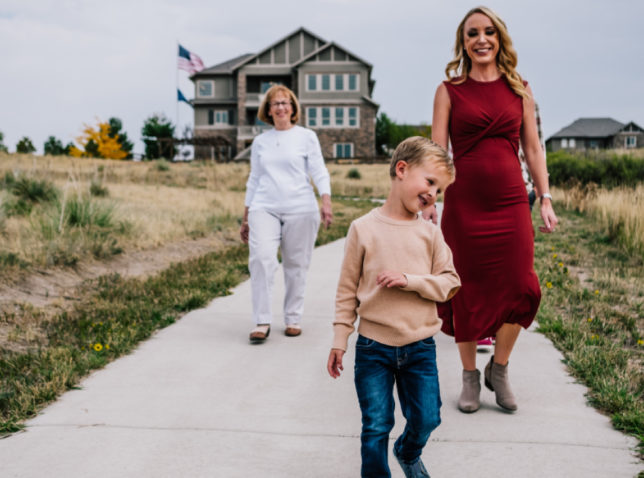Seven Celebrity Estate Planning Mistakes
It still shocks me that only 32 percent of adults in the U.S. have a Will or other estate plan in place. What I find particularly interesting is there are also some very wealthy people and well-known celebrities who also don’t have Wills, or, if they do have a Will, it’s not very well-drafted. We know this because a Will becomes public once it has been filed with the probate court, so the full details of the estates of celebrities are often available for all to read.
I used this to my advantage recently when I held a session on estate planning for some up-and-coming financial professionals. Each celebrity made a great starting point to discuss the fundamentals of good estate planning.
Creating a well-drafted estate plan is important for everyone, not just those who are very wealthy or famous. But, it’s almost as if many of these celebrities created their wills as a quick side note. It’s great that they thought about making a Will, but they didn’t do it very carefully or failed to review it at a later date.
Here’s a quick rundown on some of the more notable celebrity estate planning mistakes:
James Gandolfini
James Gandolfini, the lead actor of The Sopranos, died suddenly while in Italy in 2013. He had a grown son, Michael, from a previous marriage, and a young daughter, Lilliana, from his current marriage.
In his Will, Gandolfini made specific bequests of $1.6 million. He gave quite a bit of money to his nieces, godson and some to his friends. That, right there, is a significant amount of wealth passing to a non-spouse. Immediately, we know that he used up quite a large portion of his federal and all of his New York estate tax exemption.
He then gave the right of first refusal on his New York City condo to his son, and he left his property in Italy 50/50 to his son and daughter, in Trust. What’s interesting about that is that there was no money put in that Trust to maintain that property. The property’s location in Italy is also a potential complication. United States residents and citizens are taxed on their assets worldwide; however, Italian law also applies here, and that may have an impact on the way the property passes.
Gandolfini also distributed the rest of his estate 30 percent to each of his two sisters (for a total of 60 percent), 20 percent to his daughter, Liliana, and only 20 percent to his wife. Liliana is a minor, so her bequest will be held in Trust to age 21, which is young for such arrangements. The majority of parents often stagger distribution to children — a third at age 25, half at 30, the balance at 35. Many will do a generation-skipping transfer trust to keep the assets in trust for the children’s lifetime, so they can’t spend down. To me, it didn’t look like there was a lot of thought put into that distribution.
With only 20 percent going to his wife, only 20 percent of his residuary estate was entitled to the unlimited marriage deduction. From that perspective, between specific bequests and the 80 percent going to his sisters and his daughter, it’s estimated that his total federal and New York estate tax was around $25 million on a total estate of around $70 million.
There are plenty of mistakes in James Gandolfini’s Will. What’s really interesting to me is that the Will was a completely public document. There is absolutely no thought given to the need for privacy, which brings me to my next celebrity example.
Jacqueline Kennedy Onassis
Someone who probably maintained her privacy the most throughout her lifetime was Jacqueline Kennedy Onassis. She had a pour-over Will that made a few small distributions — like a personal item to Maurice Templeton – and funneling everything else to her revocable trust. It’s important that she still had a Will, in case her Executors needed to probate and capture some assets, but having everything poured into a revocable trust maintained her privacy. Jackie’s Will is held as an example of good estate planning.
What I find interesting for a person who maintained a lot of control during her lifetime, Jackie allowed her children, Caroline and John, to make the ultimate decision whether or not to fund her Charitable Lead Annuity Trust (CLAT). This trust was to be for the benefit of her private foundation, for 24 years, and then the principal would be distributed to her grandchildren, which made for good tax strategy and also fit with her philanthropic goals. While it’s understood why she gave the final decision to her children, as you want that sort of flexibility in an estate plan, I am surprised that she didn’t have a third-party tie breaker involved in the decision. Ultimately, Caroline and John decided against funding the Charitable Lead Trust, which meant more money for them, but it also increased the taxes due and short-circuited any philanthropic goals Jackie might have had.
If Jackie made a mistake, it might have been in her choice of fiduciaries. You have to be careful who you choose in these roles. She obviously trusted her children. Did they make the choice she would have wanted?
Robin Williams
Speaking of problems with fiduciaries, we turn next to Robin Williams. He appears to have had a pour-over Will and revocable Trust similar to Jackie O’s. Because his revocable trust is a private document, his bequests were private, but he did have two irrevocable life insurance trusts. Normally, we wouldn’t know much about these irrevocable trusts, but there were several issues with his trustees over the years. One trustee resigned, and the remaining trustee appointed someone who took the role but then later resigned.
Of the two irrevocable trusts, one was created prior to his adoption of his stepchild and the other when he had more children. He obviously wanted to take care of his children. This is excellent planning, and owning life insurance outside of his taxable estate certainly made a lot of sense. Many people don’t understand that life insurance is income tax-free, but it’s not necessarily estate tax-free.
Most of Robin Williams’ $35 million estate was locked up in a winery. This could have created liquidity problems for his estate, as the government wants to be paid its taxes within 9 months and you don’t want to be selling a winery at fire-sale prices. The life insurance provided an excellent source of liquidity for his estate to pay estate taxes.
One interesting note for Robin Williams: His Will apparently has a clause preventing Disney from using any outtakes of his voice in producing future Aladdin sequels until 25 years after his death.
Joe Robbie
Contrast Robin Williams with the estate of Joe Robbie. He was the owner of the Miami Dolphins and an attorney by education. He also had a pour-over Will and revocable trust, and he was survived by his wife and nine children. His big mistake was that his $100 million estate was mostly illiquid. He owned an NFL football team and a stadium. It doesn’t appear that there was a lot of thought put into the impact that estate taxes would have on ownership of the team.
Eventually, the team had to be sold to pay the estate taxes. The NFL clearly learned its lesson, and it appears that there’s more attention given the succession and the liquidity issues, because the league doesn’t want to be put in these types of positions where there has to be a fire sale.
Philip Seymour Hoffman
Unfortunately after being sober for many years, Philip Seymour Hoffman died suddenly from drug abuse. His estate is interesting, and not in the good way. He was with Mimi O’Donnell for 14 years, and had three children with her, though they never married. He put an estate plan in place in 2004, when he was not as wealthy, for an estate valued at $500,000. He died leaving an estate of over $35 million.
Obviously, he failed to update his estate plan, even failing to include his two daughters born after 2004. Generally speaking, you should update your estate plan when you have children. A well-drafted estate plan should list current children and then also have a clause to also include hereinafter born children.
He left quite a bit of his estate to his companion, Mimi. Since she wasn’t his wife, the marital deduction didn’t apply, resulting in significant estate taxes. He also had no life insurance. In fact, Mimi tried to settle the estate quickly in order to free up funds.
We learn here the importance of updating your estate plan and accounting for the survivor needs of your family. It takes a while to go through probate and to get access to any funds. Life insurance is the perfect tool for providing for these survivor needs, because once you have a death certificate, death benefits get paid fairly quickly.
Joan Rivers
Another recent celebrity death is Joan Rivers. She had a pour-over Will and a revocable trust, so everything is good from that perspective. What’s interesting is that her Will states she was a domiciled in California and only a resident of New York. What’s at play here is that New York has an estate tax, while California does not. She lived in New York because New York has less onerous income taxes than California, but, as she said in her Will, she planned to die as living in California to avoid the California estate tax.
She’s a celebrity, so maybe you could argue that celebrity rules apply, but I would say that that would be very difficult strategy to rely on for a normal person. Her estate was about $150 million; the difference between dying as a Californian versus as a New Yorker would be about $14 million in tax to be paid to New York. And of course her estate still would have to pay federal estate taxes.
This question of “where you live” is something that needs to be carefully managed, especially for people who own real estate in multiple states. The rule is that you can’t stay more than six months and a day in any one state or you’re assumed to be domiciled in that state.
Whitney Houston
This brings us to Whitney Houston. She died in 2012, but her estate became even more complicated with the 2015 death of her daughter, Bobbi Kristina. Whitney Houston’s estate is somewhere around $20 million, though there is speculation that it might be in excess of $100 million.
She wrote a Will in 1993, a month before Bobbi Kristina was born. That makes sense — if you’re going to have a child, create a Will and make sure to address guardianship issues. She did two codicils, and she also made changes and additions in the year 2000. It’s a very simple Will that left the majority of her estate in Trust for Bobbi Kristina, to be distributed 10 percent at age 21 and then another percentage at 25 and the balance at age 30. In the event that Bobbi Kristina died and didn’t have children, then the estate was to be divided among her mother and Bobby Brown, her husband at the time. A small portion was to be put in Trust for her brothers. When she and Bobby Brown divorced in 2007, the bequest to Bobby Brown was made invalid, so he would not receive money under the Will.
Then Bobbi Kristina died at the age of 22. She had vested in 10 percent of the estate, but the balance of the estate, since she didn’t have children, is going to go to Whitney’s mother, Cissy, and to her brothers in trust. I don’t see any evidence that Bobbi Kristina had a Will, and, if so, she died intestate, which means that her property would pass to her father, assuming she didn’t actually marry that gentleman who claims to be her spouse in social media.
It’s interesting that Whitney Houston didn’t update her document after Bobbi Kristina was born. She didn’t have a private estate plan like a pour-over Will and a revocable trust. She also didn’t update her plan after her divorce in 2007. Clearly, she trusted her mother with managing money but not her siblings. Honestly, her plan became more interesting when Bobbi Kristina passed away at such a young age. It certainly was not anticipated.
Frequently I talk to people who are heading towards making the same mistakes as the celebrities we’ve discussed. These mistakes include liquidity issues, lack of life insurance, underuse or overuse marital deduction, not properly addressing property outside the United States, and business succession issues. Some might not fund their trust while they are living, or some may not choose the right trustees to execute their wishes.
The key takeaway is that everyone should properly plan for their estate and the distribution of their assets to their heirs. The cornerstone of this is a Will, but, to the extent that you want to maintain privacy, you might want to create a slightly more sophisticated plan and involve a revocable trust.
This post is for informational purposes only and should not be considered as specific financial, legal or tax advice. Depending on your individual circumstances, the strategies discussed in this presentation may not be appropriate for your client’s situation. The information in this material is not intended as tax or legal advice. Always consult your legal or tax professionals for specific information regarding your individual situation.
3124566CC_JUN22





